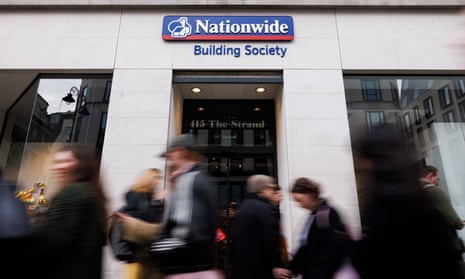Should the members of Nationwide be allowed to vote on their building society’s £2.9bn acquisition of Virgin Money? Well, of course they should. The concept of mutual ownership can be fuzzy around the edges, but a deal that will expand the society’s assets by about a third is precisely the sort of transaction where the members should have the final say.
Indeed, you’d hope the Nationwide’s board would see the sense of checking that the owners are up for the adventure. The Virgin deal is more than an add-on (even before one adds to the headline price the £250m that Sir Richard Branson will get as an exit fee for the brand licence). It is not an everyday piece of business. The cries of outrage about the lack of a vote by members are understandable.
Here’s the practical problem, though: even if Nationwide’s directors were sticklers for democratic governance, it’s hard to see how they could make a vote happen under current rules. The main problem is the 1986 Building Societies Act, which doesn’t require a society to hold a vote if it is buying a business that looks roughly like its own.
Virgin fits the description. It has a sideline in business banking, which is one of the attractions for the acquirer’s board, but 90% of its assets are residential mortgages, which is what Nationwide does. Special votes under the law are reserved for life-or-death matters such as demutualisation, which Nationwide obviously isn’t proposing.
Could Nationwide hold a vote on the deal regardless? That’s where another obstacle arises in the form of the Takeover Panel, which oversees bids for listed companies and sensibly looks to protect a target’s shareholders from time-wasters, chancers and all manner of uncertainties. If a bidder makes a firm offer, it’s meant to be on the hook.
Rule 13 of the Takeover Code seems critical: a bidder cannot insert conditions into an offer that “depend solely on subjective judgments”. Since Nationwide is not required by law to hold a binding poll of its members, doing so would probably be deemed “subjective” – the bidder’s board would be doing something it doesn’t have to do. It would be different if the 1986 act required a vote, but it doesn’t.
Nationwide, it should be said, hasn’t done itself any favours in the way it’s handled the democracy question. If your 140-year-old pitch is that mutuality means a bigger say for members – meaning the account-holders, savers and borrowers – it should have been obvious that the absence of a vote would cause a fuss.
Kevin Parry, its chair, said Thursday’s binding offer was made “after taking comments from members into account”, but a limited sample of opinion is not a substitute for a binding vote.
The bottom line, though, is still the same: the board’s hands look to have been tied, genuinely, by that 1986 act. There is no way around it this time. An advisory vote, as some have suggested, would be meaningless. The only real answer is to change the law for future cases. Back in 1986, building societies weren’t in the business of buying listed banks, and so the possibility probably wasn’t considered.
That Nationwide has reached the point of being able to do £3bn takeovers is a tribute to its success. It has done an admirable job as champion-in-chief of mutuality, which is why one hopes it hasn’t underestimated the technical challenge of integrating Virgin. The banking jungle needs the biodiversity that building societies provide.
after newsletter promotion
Last year’s benefits at Nationwide included £100 straight into the accounts of 3.4 million eligible members under its “fairer share” policy. It is a different beast from banks.
But the rules need to keep up to protect that difference. By rights, the members should be voting on the Virgin deal.

